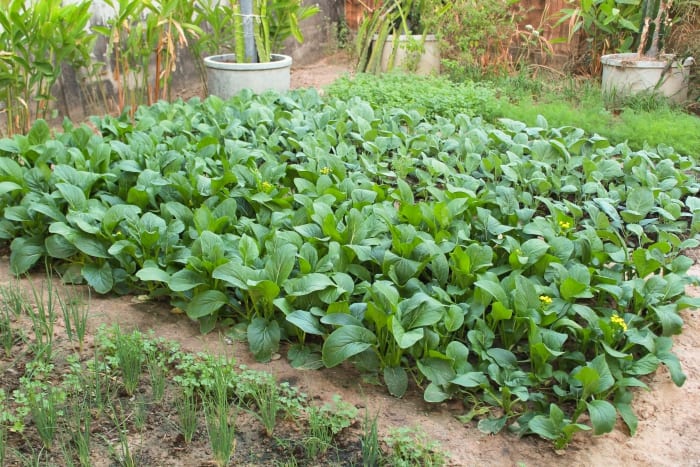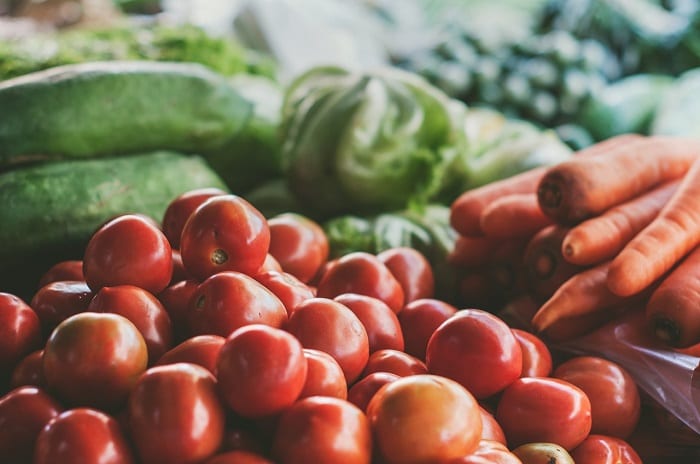
(Stock Photo)
If householders grow the food they want to eat, this would help to reduce their supermarket bills and the island’s food imports.
This view was expressed today by Minister of Housing, Lands and Rural Development, Denis Kellman, as he delivered remarks at the start of the lunch time lecture held by the Rural Development Commission (RDC) in Queens Park and entitled: Investing in Food Security.
Lamenting the fact that some of us have moved away from fresh food and the farm and live instead on fast food, because of our fast-paced lifestyles, Minister Kellman said: “While people are free to choose what they want to eat, we have to assess the impact on our way of life. Non-communicable diseases (NCDs) are on the rise and we must all do our best to control them.
“If you grow and eat at least two healthy crops, or rear animals, you are contributing to dietary change, exercising through gardening and farming and improving your health.”
He commended the work of the RDC in helping rural residents both to gain knowledge and receive receptacles in which to grow produce over the past few weeks, to help initiate the project. He noted the next step would be “going into the schools to get our young people interested in growing food”.
“We at RDC intend to reach our rural residents to get them growing crops that will impact on the economy of Barbados. We also encourage them to go beyond household use and consider farming as a business; our officers in the loans programme stand ready to assist those who qualify,” explained Mr. Kellman.
The lecture was delivered by FAO’s Sub Regional Coordinator for the Caribbean, Dr. Lystra Flecher-Paul. While endorsing the Minister’s statement on the impact of NCDs, she emphasised that if people didn’t want to lose a limb or their eyesight because of diabetes or have a stroke because of hypertension, then they had to embrace the RDC’s Grow What You Eat campaign
“You must invest in food and nutrition security. When you grow and eat your own food, you control what nutrients you put into your body; you know that the vegetables you consume have not been sprayed with harmful chemicals and you make a conscious choice to eat healthily. Growing and eating your own food will not only save you in medical costs but it will also help you to realise savings in the amount of money you pay in the supermarket.

(Stock Photo)
“If you grow cassava and sweet potatoes and lettuces and tomatoes in your home garden, that will save you from purchasing those food items and it will save some of your hard-earned cash. And, growing your own food is also rewarding from a psychological point of view. There is nothing more therapeutic than spending time in your garden, early in the morning among the plants and sharing your tomatoes and your lettuce with your neighbours,” explained Dr. Flecher-Paul.
She also welcomed the involvement of children in the project, stressing that if done from very early, it would inculcate good eating habits and healthy lifestyles.
The FAO representative also pointed out that the Grow What You Eat campaign was relevant to Government and the private sector as well. She noted that at every cocktail party and meeting, the former should be serving local fruits and vegetables; and public institutions like the hospital, prison and school feeding programme should be doing likewise.
“Even in our hotels, local food should be served because tourists come to our shores for the local experience,” she said, adding there should also be incentives for private sector investors to purchase and serve food grown locally “in the same way that Government gives tax shelters to hotel chains”.
“They should also include a clause which says that a certain percentage of the food that is served should be grown locally,” she said noting it could be implemented through establishing contracts to local farmers’ groups.
Food security was defined by Dr. Flecher-Paul as: “When all people, at all times have access to safe, healthy and nutritious foods for a healthy lifestyle.”
